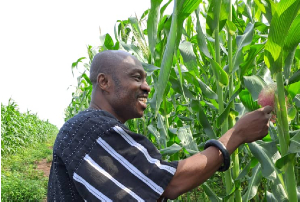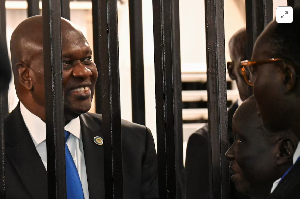The Board Chair of Korle-Bu Teaching Hospital, Dr Bernard Okoe-Boye, has stated that contracting COVID-19 does not automatically mean the end result is losing one’s life.
Dr Okoe-Boye noted that there was no need for the ongoing panic attacks as adhering to precautionary measures and treatment are one of the ways to fight the pandemic.
“There is no reason to panic because testing positive for coronavirus doesn’t mean you are ill or about to die. In fact, most of us here if you test for common cold most of us will be positive but it doesn’t mean we are unwell. You test positive because it has come into contact with you before. It’s like hepatitis; it’s a viral condition. The hepatitis B or C, people test positive all the time but they are stronger,” He said in an interview with GhanaWeb.
As the epidemic continues to rise in Ghana, many have been engulfed with fear due to the number of death reports in hard hit countries.
Despite the alarm worldwide, Dr Okoe-Boye noted that the death rate in European cases is 5% mostly the older population thus comparing the situation to Ghana would be wrong.
He explained “The fatality, death rate in Europe and the United States is around 5%. If you say Ghana too or any other country also has 5% you may be missing it. The reason is simple, the old population in the developed world is bigger than Africa. So if you are in Ghana where the above 70s are less than maybe 7% and they are the ones who will normally go down.”
Ghana initially reported two confirmed cases some two weeks ago but the toll reached nine as of March 18, 2020. The Ghana Health Service (GHS) in a statement disclosed that one of the affected persons was a 56-year-old Ghanaian who returned to Accra from a trip to the United Kingdom (UK) about a week ago.
The other was a 33-year-old Ghanaian who returned to the country from a conference in the United Arab Emirates (UAE).
According to the GHS, both were imported cases, adding that the patients including the other seven infected persons were receiving treatment in isolation.













